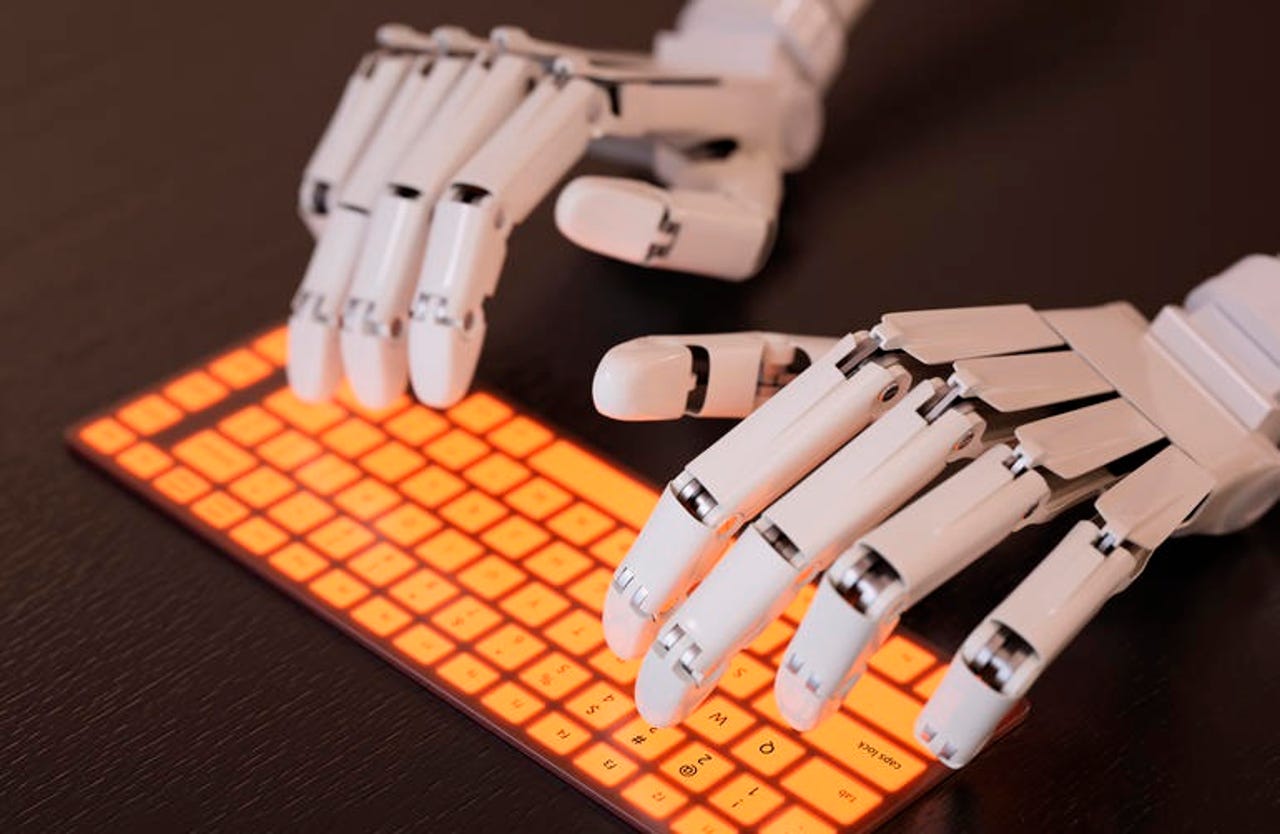This startup's 'software robots' are taking the jobs of low-skilled office workers


Software robots can perform human tasks, such as reading screens, saving email attachments, and importing info into a company's database.
The $30m raised last week by UiPath, which builds apps to automate repetitive office work, is the largest investment a Romanian startup has ever received.
Its tools are used by leading companies working in financial services, insurance, and healthcare, and each software robot license can replace up to five low-skilled full-time human employees, UiPath says.
The firm's software robots mimic human users. Once installed on a computer and trained to perform certain tasks, they can read screens the way a human does and can perform a broad range of tasks, such as saving email attachments from clients, extracting data from a particular field in a bill, and importing that data into a company's software, where it can be manipulated by a human employee.
A software robot could be trained to install Office copies on Windows machines, for example. It knows where and when to click next, and to check certain buttons. Of course, it still needs to wait for files to copy during certain steps of the installation process.
One of the unusual approaches that UiPath has adopted is that it offers its software free to companies with a turnover below $1m.
UiPath was founded in Romania in 2012, by former Microsoft software developer Daniel Dines, now CEO, and Marius Tirca, CTO.
It grew from 10 people employed two years ago, to 150 today. About 100 of them are still located in Bucharest, Romania, where the tech team is located. The company has physical offices in New York, London, Bangalore, Tokyo, and Singapore, and plans to set up shop in Hong Kong and Sydney.
UiPath's turnover is undisclosed but the management says it increased sixfold in 2016, and most of the customers are US and European. CEO Dines said he's working with two Top 10 Fortune Global companies, among others.
A competitor to Automation Anywhere and Blue Prism, UiPath says it will use the money raised in the series A round led by venture capital firm Accel Partners to expand the business and develop its technologies.
CTO Tirca said his tech team is working on adding more cognitive capabilities to the software, such as natural language processing and machine learning. Work is also going on to improve the way the robots handle unstructured data.
UiPath plans to double the team by the end of this year, tapping into Romania's vibrant tech talent pool. The salaries it offers are among the highest in the country, but its technical job interviews are among the most difficult. The management wants to recruit the best and brightest, regardless of their experience in the field.
The robotic process automation market is expected to approach $9bn by 2024, according to Grand View Research. It reckons small and mid-size companies will benefit most from automation, as software robots are 65 percent less expensive than full-time employees. Forrester estimates that, by 2021, there will be over four million robots doing office, administrative, sales, and related tasks.
Although not unusual by Western European or Silicon Valley standards, the $30m funding UiPath has just raised is big news for Eastern Europe, a region with lower living and business expenses and one that's known for software outsourcing rather than homegrown projects.